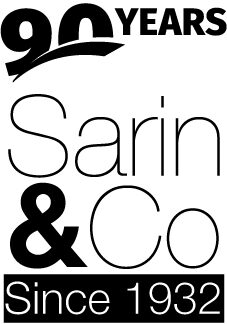The recent mid-air “collision” between Arnab Goswami and Kunal Kamra onboard an Indigo flight, which resulted in Kamra getting banned from flying Indigo for 6 months has brought the issue of unruly passengers back on prime time. Although, the “no fly list” has been in place since September, 2017, it has been sparingly used. Excluding this incident, there has been just one reported case of a flying ban, which involved a business man from Ahmedabad who had staged a fake hijack of a Jet Airways flight.
The law regarding the “no-fly list” and unruly passengers is governed by Civil Aviation Requirements issued by the Directorate General of Civil Aviation (“DGCA”) dated 8th September, 2017. The CAR categorises the behaviour into three levels. The first level or Level 1 as it is called, covers behaviour such as physical gestures, verbal threats etc. The maximum ban, which can be imposed on a person who has been found guilty of a Level 1 act is 3 months. Level 2 covers acts such as hitting, groping, pushing and sexual harassment; the maximum permissible ban for this category is 6 months. Lastly, level 3 covers acts that are “life threatening”, a person found guilty under this category can face a minimum of 2 years ban and, which may extend for life.
The law has certain inherent procedural requirements, which are required to be followed by an airline before a person can be put on the no-fly list. First, the cognizance of the event cannot be taken Suo-moto by the airline; the regulations contemplate filling of a written complaint by the Pilot in Command (“PIC”) of the flight since the PIC is the penultimate judge as to whether an act onboard the aircraft was detrimental to the safety of the flight or not. Thus, it is only the formal complaint from the PIC, which can put the law in motion. Secondly, once a written complaint has been received by the airline, the airline is required to set up an internal complaints committee, which has to be headed by a retired District Judge. This Committee has to investigate the complaint and decide the future course of action within 30 days. During the pendency of the matter before the Committee, the airline may bar the alleged disruptive passenger from flying; this initial ban may not however exceed 30 days. Although, the regulations are silent on how the Committee will proceed with its inquiry but, nevertheless, the principles of natural justice require that an opportunity must be accorded to the accused person so that he/she can apprise the Committee with his version of the events. Once the Committee has arrived at a conclusion, and decides to include the passenger on the no-fly list, the said fact will have to be notified to the DGCA by the airline. The passenger so banned from flying, consequently has a right to appeal against the decision of the Committee before another Committee designated of the Ministry of Civil Aviation.
In the instant case, there are various conflicting facts that are emerging. Firstly, it is unclear whether any internal complaints committee was constituted by Indigo or not. Since it is an internal committee it is possible that Indigo may have constituted it; but the pertinent question here is whether Kunal Kamra was accorded an opportunity to narrate his version. Kunal Kamra has gone on record and said that he wasn’t given any opportunity by the Committee. If it’s true, then it is a serious procedural lapse and makes the entire procedure arbitrary and unfair, which is liable to be set aside. Secondly, it’s very clear from the video, which is publicly available that Kunal was questioning Arnab (although abusive language was indeed used) and at no time did he hit, push or assault Arnab. Therefore, it is unclear what prompted the committee to impose a 6 months ban, which is only permissible for level 2 acts. Finally, the PIC of the flight has gone on record and stated that he hadn’t lodged any formal complaint with the airline; he further went ahead and stated that in his opinion the act of Kunal was no doubt deplorable but it did not even qualify for a level 1 offence. This statement of the PIC raises serious questions over Indigo’s decision to ban Kunal from flying for 6 months. Since, as stated earlier, it is only the PIC who can put the law in motion and airlines cannot take suo-moto cognisance of such events.
Recently, Kunal Kamra has served a legal notice upon Indigo airlines seeking an unconditional apology along with INR 25 lakhs as compensation. It would be worth to see how Indigo replies to this notice since it is now the reply of Indigo, which will determine the course that this dispute will take.
In the coming days we will have to see how events unfold. Moreover, if this dispute reaches before a Constitutional Court, which is highly likely to happen, the adjudication will not only involve testing the legality of the airlines actions but it will also include judicial scrutiny of the CAR itself.

